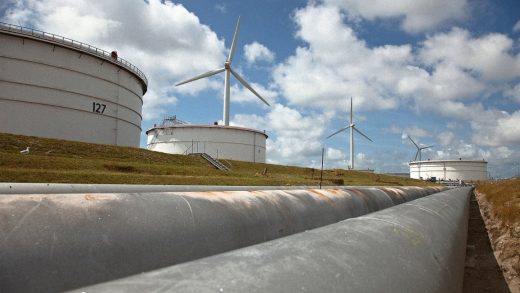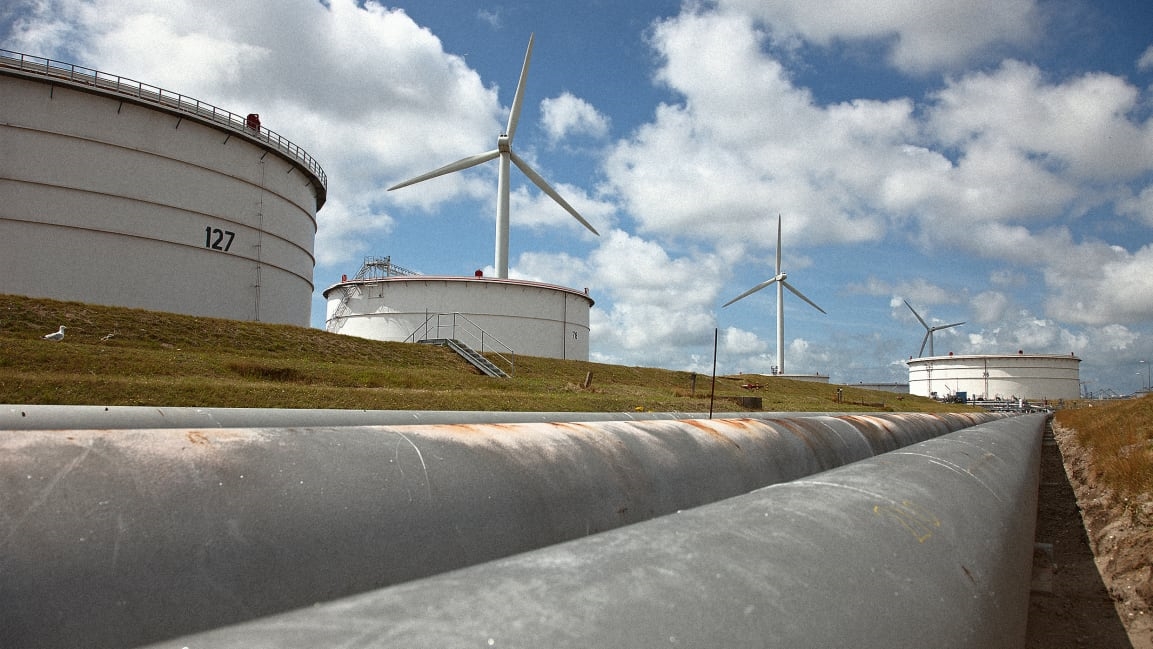BP wants to become the world’s largest renewables producer (but still pump a lot of oil)
One of the largest oil companies in the world is now making a major shift to renewable electricity. By 2030, BP plans to spend $5 billion a year on low-carbon energy, becoming one of the largest producers of renewables in the world. The company announced a new strategy today that it says “will reshape its business as it pivots from being an international oil company focused on producing resources to an integrated energy company.”
At the moment, Nextera Energy is the world’s largest renewables provider, with around 20 gigawatts of solar and wind energy. BP aims to increase its own capacity by twentyfold compared to its current numbers so that it is producing around 50 gigawatts by the end of the decade. (EDF, a French energy company, has the same goal.) Its fossil fuel production will shrink by at least 1 million barrels of oil a day compared to what it produced in 2019. It will invest more in bioenergy and hydrogen. Today the company has around 18,700 gas stations around the world; it plans to expand its electric vehicle charging points from 7,500 to 70,000 by 2030.
“I think what this reflects is really a responsible assessment of where the world is going in terms of energy demand, where the opportunity for growth exists, and demonstrates that the company wants to remain an energy company, as opposed to an oil and gas company,” says Danielle Fugere, president and chief counsel of As You Sow, a nonprofit that focuses on environmental change through shareholder advocacy.
When BP made its announcement, at the same time as it announced losses because of the pandemic’s deep impacts on the oil industry, its stock value rose. “This didn’t harm the value of the company,” says Fugere. “In fact, it increased the value of the company, because what investors want to see oil and gas companies do is respond to the way the world is changing, and to avoid a disorderly, painful transition. There’s no doubt that the world must change to ensure that we remain below two degrees or 1.5 degrees [of global warming]. We’re starting to see countries ban internal combustion engines. And so it’s prudent for BP to acknowledge the reality of a changing energy market.”
Earlier this year, the company announced that it planned to reach net zero by the middle of the century, meaning that any emissions that it produces are offset by other actions like carbon capture or forest restoration. That doesn’t mean that it plans to stop producing oil, something that researchers have suggested needs to happen if we’re going to stay within the world’s carbon budget—regardless of steps taken to plant trees or other action taken. But it’s possible that the company may realize, based on the success of renewable investments, that a full transition away from fossil fuels can happen more quickly.
The decimation caused by the coronavirus crisis is instructive, says Fugere. “I think it was a demonstration of what’s to come. When demand falls, there is too much oil and gas in the world. What that means is a very steep decline in price, and companies are not producing value at that point. So I think it was an early warning, for the oil and gas industry. Those companies that are paying attention are making adjustments, because the world has to cut its demand for oil and gas, and to ignore the way the wind is blowing is putting investors in the company at risk.” European oil companies, she says, have been moving faster than American oil companies such as Exxon, which face more risk. (Exxon was the world’s most valuable company in 2010, and is now eclipsed by others, including Tesla.)
BP still owns part of Rosneft, the Russian state oil company, and has a long way to go before it could be seen as anything approaching sustainable. The company has a history of blocking climate policy, including the $13 million it spent in Washington state when the state was considering a price on carbon. But as its investments shift, its lobbying may also change. And its new plans are a sign of progress. While renewable energy would grow without the company, it can also help the industry move faster. Oil giants “have the ability to bring a lot of resources to the table,” Fugere says. “That is what we need. We need that innovation, and we need a lot of money to be directed at clean energy, low-carbon energy. So I think that that is a good thing for the world.”
(48)



